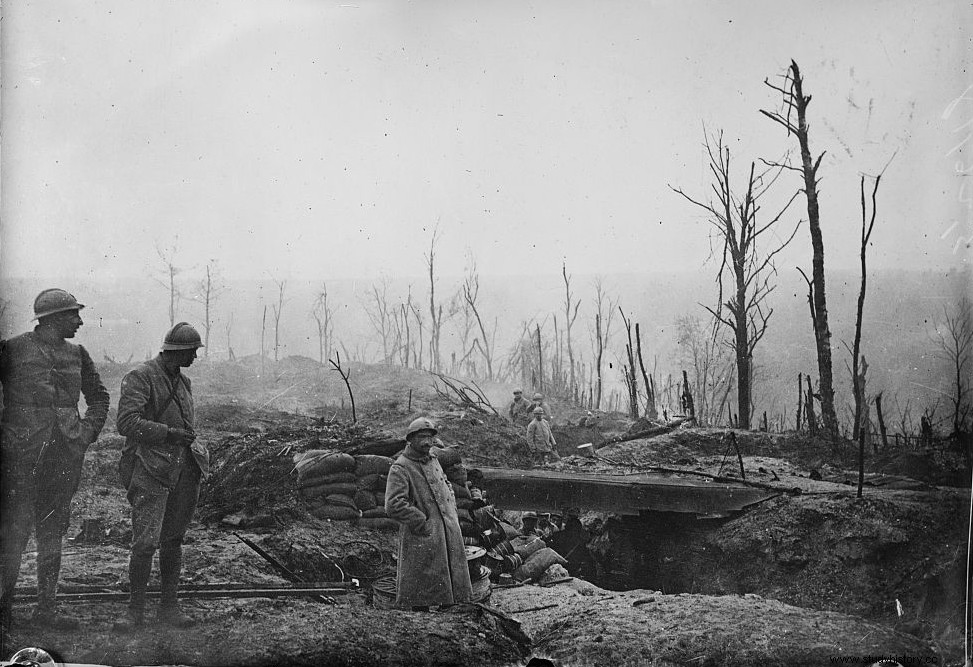- The Battle of Verdun takes place during the First World War, which opposes the Triple Entente (France, Great Britain, Russia) against the Triple Alliance (Germany, Italy, the Austro-Hungarian Empire)
- In the minds of the belligerents (countries at war), the war was supposed to be short. Two years after its start, it is transformed into a war of position where the armies face each other in the trenches. The supply of German civilians is difficult, in particular because of the British blockade.
- The German command had planned in 1915 to massively invest its troops in the East to win against Russia before redeploying its troops in the West:the victories are important but the territory is too large to cover, and the Italy's entry into the war on the side of France and Great Britain made him revise his plans. A plan is devised to establish a battle of attrition with Verdun the target.
February to December 1916

Characters
Philippe Pétain
Joseph Joffre
Procedure
On February 21, 1916, German soldiers launched a surprise offensive in Verdun. After a strong artillery strike, the troops rush forward and manage to gain ground. Taking Verdun, for the German command, would allow the French front to be pushed in with the aim of ending the war. The Germans are going to use poison gas as a weapon for one of the first times.
It was Philippe Pétain, then general, who organized the defense and the response. The French troops of the territory turn to take part in the defense of the city. It is also committed to providing logistical support for the hairy. Verdun can only be supplied by a narrow departmental road, where trucks will drive day and night. Maurice Barrès (writer and politician) calls it the “Sacred Way .
Secondly, from June, the French managed to launch a counter-offensive and regain the lost territories. In July, in order to relieve the troops of Verdun, the British started the battle of the Somme, also very deadly.
In December, when the battle ends, the territory conquered is almost nil, the two armies have returned to their initial position, at the cost of incredibly heavy human losses.
Consequences
- The hell of Verdun is the major symbol, for the French, of the Great War. By the imposed sacrifice, the relentlessness of the war, the living conditions of the hairy, but also for the patriotism and the service rendered to the nation. It is also the symbol of the new industrial mode of warfare:the number of bombs launched on each side is impressive for the time.
- There are more than 700,000 victims. France is the country with the most losses.
- The region still retains the marks of the intensity of the bombardments:the shell impacts have drawn a lunar landscape around Verdun.
